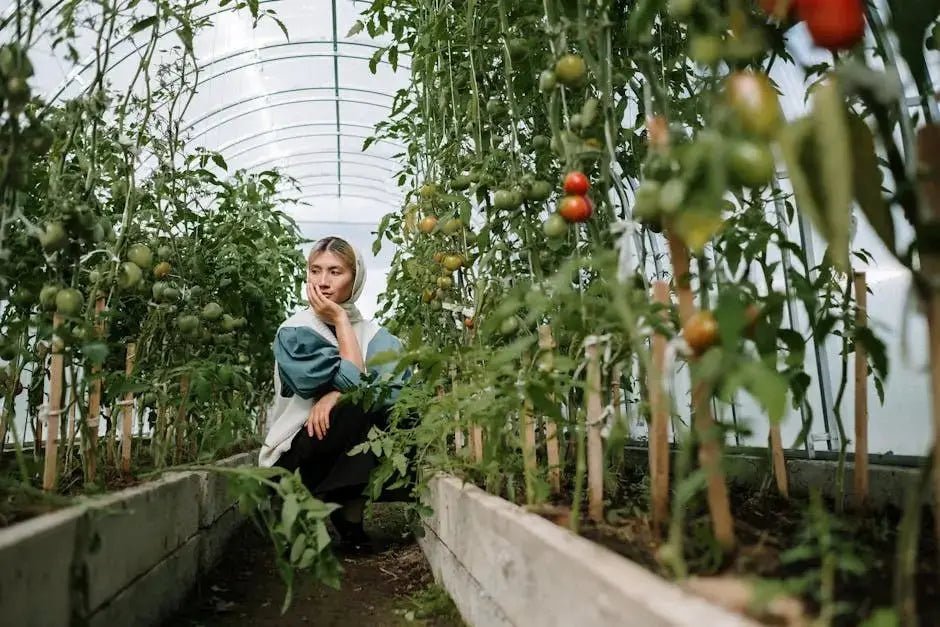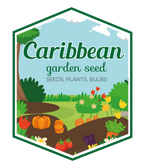
What Are the Benefits of Growing Your Own Spice Seeds?
Why Choose to Grow Your Own Spice Seeds?
Growing your own spice seeds allows you to have fresh, flavorful spices at your fingertips. It also gives you control over the quality and purity of the spices you use.
One of the key advantages of growing your own spice seeds is the unparalleled freshness that home-grown spices provide. Freshly harvested spices retain their essential oils and aromatic compounds, ensuring that every dish you prepare bursts with flavor. Unlike store-bought spices that may sit on shelves for months, home-grown spices offer a vibrant and intense taste profile that can elevate even the simplest recipes.
In addition to freshness, growing your own spice seeds allows you to explore a wider variety of spices that might not be readily available at your local grocery store. Whether you’re interested in uncommon varieties like fenugreek and nigella or traditional options like dill and coriander, cultivating your own spices opens up a world of culinary possibilities. This diversity not only enhances your cooking but also gives you the satisfaction of cultivating plants that cater to your personal preferences and needs.
Moreover, growing your own spice seeds can be a fun and educational hobby that connects you with nature. Watching your plants grow from tiny seeds to full-fledged spice producers offers a sense of accomplishment and a deeper appreciation for the cycles of life. It’s a hands-on way to learn about different plant species, their growing conditions, and the processes involved in bringing food from garden to table.
For those interested in sustainable living, growing your own spice seeds is an excellent way to reduce your environmental footprint. Home gardening minimizes the need for transportation and packaging, which are significant contributors to carbon emissions in the food industry. By harvesting your own spices, you can contribute to a more sustainable lifestyle and make a positive impact on the environment.
What Are the Health Benefits?
Cultivating your own spices ensures that you’re using organic and chemical-free ingredients, which can contribute to better health. Many spices also have medicinal properties that can enhance your well-being.
By growing your own spice seeds, you eliminate the risk of consuming spices contaminated with pesticides, additives, and other chemicals often found in commercially produced spices. This can be particularly beneficial for individuals with allergies or sensitivities to certain substances, as you have complete control over what goes into your spices. Organic gardening practices further enhance the health benefits by promoting soil fertility and the overall well-being of the garden ecosystem.
Many spices possess potent medicinal properties that have been utilized for centuries in traditional medicine. Spices like turmeric, ginger, and garlic are well-known for their anti-inflammatory and antioxidant effects, which can support your immune system and overall health. Growing your own spice seeds allows you to have a fresh supply of these natural remedies on hand, enabling you to incorporate them frequently into your diet and daily routine.
How Can Growing Spice Seeds Save You Money?
While the initial setup might require an investment, growing your own spices eliminates the need to constantly purchase expensive store-bought spices.
Purchasing spice seeds from local markets can be incredibly cost-effective. For just a few dollars, you can buy a substantial quantity of seeds that will yield far more spices than a small store-bought jar ever could. This translates to significant savings over time as you no longer need to spend money on replenishing your spice rack continuously.
Moreover, many spices are perennials or self-seeding plants, meaning that with proper care, they will return year after year without needing to be replanted. This long-term investment can save you even more money and effort in the long run. Growing spice seeds can thus become a sustainable and economical practice that benefits your wallet and your culinary adventures.
What Environmental Benefits Can You Expect?
When you grow your own spices, you reduce your carbon footprint by decreasing the need for transportation and packaging of store-bought spices.
Many spices are excellent companion plants that can naturally repel pests and enhance the growth of other crops in your garden. For instance, planting marigold or basil can help keep harmful insects at bay while attracting beneficial pollinators like bees and butterflies. This contributes to a healthier garden ecosystem and reduces the need for chemical pesticides, which can be harmful to the environment.
Additionally, growing spice seeds in an eco-friendly manner promotes sustainable farming practices. By composting kitchen waste and utilizing organic fertilizers, you can create a closed-loop system that enriches your soil and reduces waste. This not only supports a more sustainable environment but also ensures that your spices are grown in nutrient-rich soil, enhancing their flavor and medicinal properties.
How Does Gardening Benefit Mental Health?
Gardening has been shown to reduce stress and improve mood. The simple act of tending to your spice garden can provide a therapeutic and fulfilling experience.
Engaging in gardening activities encourages physical activity, which is known to release endorphins and improve overall mental health. The rhythmic tasks of planting, weeding, and harvesting can be meditative, offering a sense of peace and tranquility. This is especially beneficial for individuals looking to alleviate stress or anxiety and seeking a productive way to spend their free time.
Furthermore, gardening fosters a sense of accomplishment and responsibility. Watching your spice seeds germinate and grow into flourishing plants can boost your self-esteem and provide a profound sense of achievement. This can be particularly rewarding for individuals who are new to gardening and are looking for a fulfilling and straightforward hobby.
What Are the Culinary Benefits?
Having fresh spices at your disposal can elevate your cooking, providing you with more intense and fresher flavors compared to dried, store-bought versions.
Freshly harvested spices release essential oils that dramatically enhance the aroma and taste of your dishes. For example, fresh cilantro seeds create a vibrancy in your cooking that simply can’t be matched by pre-ground, stored spices. This enhanced flavor profile can make your culinary creations stand out, transforming everyday meals into gourmet experiences.
Growing your own spice seeds also allows you to experiment with unique spice combinations and creations. You can blend different spices to develop custom mixes, tailor-made to your taste preferences. Whether creating a signature spice rub for grilled meats or a unique herb blend for soups and stews, the possibilities are endless when you have a diverse array of fresh spices at your disposal.
Are There Any Tips for Beginners?
Start with easy-to-grow spices like basil, cilantro, or dill. Ensure you have the right growing conditions and educate yourself on the specific needs of each spice.
It’s essential to plan your spice-growing journey according to your climate and space. If you live in a colder region, you might need to start your seeds indoors and transplant them outdoors once the weather is warmer. Alternatively, leveraging container gardening can be a great way to grow spices even if you’re short on garden space. Containers also allow you to move your plants indoors or outdoors as needed to maximize their growth potential.
Another valuable tip is to pay attention to soil quality. Most spice seeds thrive in well-draining soil rich in organic matter. Regularly adding compost or organic fertilizers can greatly enhance soil fertility, ensuring that your spices get the nutrients they need to grow robustly. Proper watering techniques, such as ensuring the soil remains moist but not waterlogged, can also help in nurturing healthy spice plants.
Lastly, don’t be afraid to experiment and learn from your experiences. Gardening is a journey filled with trials and errors, and each season will teach you something new about your plants and their needs. Joining gardening communities or seeking advice from experienced gardeners can provide you with additional insights and tips to ensure your spice-growing endeavors are successful.
Start Your Spice Seed Gardening Adventure Today!
In conclusion, growing your own spice seeds offers a myriad of benefits, from enhancing your culinary experiences to contributing to a sustainable and healthy lifestyle. Whether you seek fresher flavors, cost savings, or simply the joy of gardening, cultivating your own spices can be a truly enriching journey.

![[Seeds] - Caribbeangardenseed](http://caribbeangardenseed.com/cdn/shop/files/gift-card-gift-card-1_1024x1024_dfa857db-9150-4315-a362-7f0bb3fb9c47_60x28.png?v=1722895789)
